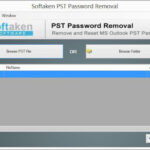Your website’s authority score is one of the key determining factors which will dictate how well you rank
in SERPs. Unfortunately, many website owners neglect their domain authority simply due to their lack of
understanding of how to improve it. Don’t worry; we are here to explain what your site’s authority
represents and how to boost your website’s domain authority.
What is domain authority
When a user looks something up online, search engines need to have a way to rank websites and deliver
the most relevant results at the top of the page. Domain authority represents a score for search engine
ranking, which predicts the likelihood of getting positioned on the results pages. Although domain
authority is based on multiple different website metrics, the most important one is the number of links
to your site.
If numerous other websites constantly reference your site, your domain authority will probably be high.
Of course, it’s also important to note which websites are linking back to your pages. If those websites
are authorities in their own field, then you will get an increase in your rank. However, the inverse is also
true, as bad links to your site bring down your ranking. This means that you should monitor the number
and quality of the backlinks to your site. Thankfully, there are numerous online tools that you can use
to check backlinks and how they affect your website. Now that we know it’s all about the number of
links to other sites let’s see if we can use that to our advantage.
Here’s how to boost your website’s domain authority:
1. Remove low-quality links
You can use the abovementioned backlink checker tools to find out who is linking to your site and if that
is helpful to your domain authority. Once you have identified which links are bad for your site, you can
try to remove them. One option is contacting the web admins of those sites and asking them to take
down the links. However, this might not always grant results since web admins can be unresponsive.
Fortunately, there is another method which you can use. Google’s Search Console offers a Disavow
links option. You can flag any problematic links to your site, and they won’t influence your authority
rating. This is also important when you receive a manual action for unnatural links.
2. Establish quality links
Unfortunately, getting quality backlinks is easier said than done. These links need to come from pages
that aren’t on your own website, so you can’t directly go and make new links. However, quality backlinks
from authoritative sites are the best way to boost your website’s domain authority. Here is how you
can get more good links:
- Ask sites to post links. It never hurts to just ask. This strategy works better if you give people a good reason to link back to your site. We always recommend having quality content that people will want to share on their site, and we will discuss this more in just a bit.
- Partner with other sites. Talk to other site owners and offer up a link exchange program.
- Reach out to media outlets. We suggest giving them something to cover by running an event. Put together a digital press kit that you can use for these occasions.
- Monitor and maintain the good links you have. Keep track of the quality backlinks, and if one gets taken down, you can contact the website and inquire about the reasons.
3. Create quality content
Although backlinks exist on other people’s websites and you can’t directly create them – you can still
inspire others by creating exciting and informative content. If you make content others will naturally
want to share, your website will receive many links from various sources. According to the digital
marketing experts from Digital Dot, content marketing is one of the best ways of spreading awareness
for your brand. You get to reach out to new audiences and build links for your site simultaneously.
4. Make sharing your content easy
Creating content won’t get you far if no one reads your articles. If you manage to impress users who
read your content, then you should also make it easy for them to share it with others. Include website
widgets that enable single button sharing. You could also create profiles for your business on various
social media platforms and distribute your content there. Users are more likely to share content on the
platforms where they found it. We realize that managing several profiles on different social networks
can be hard. However, there are social media management tools that can help you stay on top of everything.
5. Guest write on blogs
Many websites accept contributions from guest writers. The common practice is to allow you to place a
link back to your own site in the article you write for them. Since this situation is a win for all parties
involved, you can also return the favor. There is blogging software that will help you create a blog for
your website. Blogs are great for building links and establishing cooperation with other website owners.
6. Improve internal linking
The page structure of your own site can also influence your authority over search engines. However,
creating a good link building strategy that boosts your website’s domain authority is far from easy. Many
mistakes could lead to a negative SEO penalty, so you should really know what to avoid when building
internal links. A good internal link structure can distribute page authority and make your site easier to
crawl.
In conclusion
Now that we’ve explained the importance of having high authority for your site, we hope you realize
how instrumental backlinks are and how they influence search results. We have also given you six
examples of how to boost your website’s domain authority, so now you should have no problem
reaching page one. Connect with other professionals who can help you build links for your site.
Meta description: If you are having trouble getting a high rank in search engine results, we can give you
6 ways to boost your website’s domain authority.




